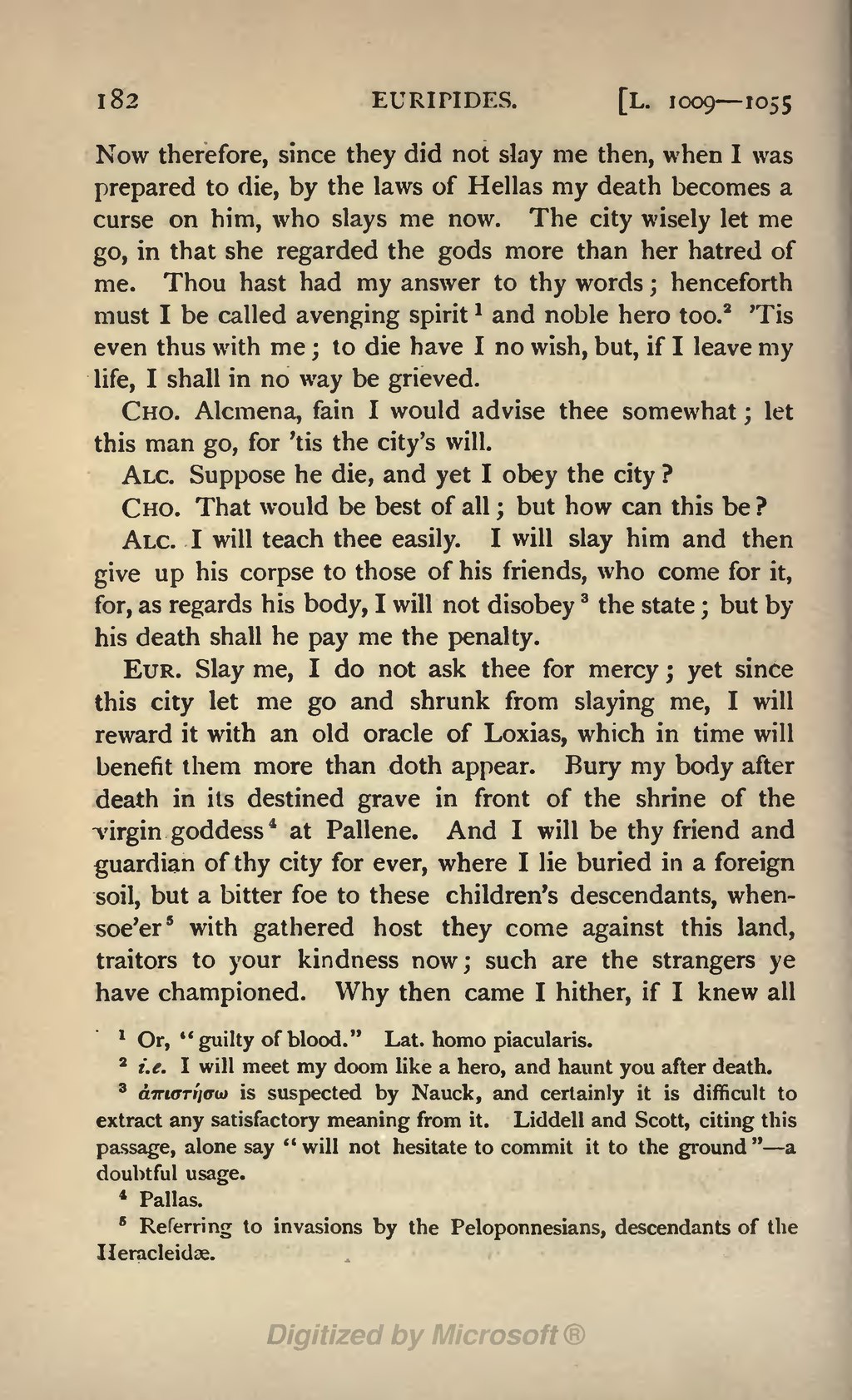Now therefore, since they did not slay me then, when I was prepared to die, by the laws of Hellas my death becomes a curse on him, who slays me now. The city wisely let me go, in that she regarded the gods more than her hatred of me. Thou hast had my answer to thy words; henceforth must I be called avenging spirit[1] and noble hero too.[2] 'Tis even thus with me; to die have I no wish, but, if I leave my life, I shall in no way be grieved.
Cho. Alcmena, fain I would advise thee somewhat; let this man go, for 'tis the city's will.
Alc. Suppose he die, and yet I obey the city?
Cho. That would be best of all; but how can this be?
Alc. I will teach thee easily. I will slay him and then give up his corpse to those of his friends, who come for it, for, as regards his body, I will not disobey[3] the state; but by his death shall he pay me the penalty.
Eur. Slay me, I do not ask thee for mercy; yet since this city let me go and shrunk from slaying me, I will reward it with an old oracle of Loxias, which in time will benefit them more than doth appear. Bury my body after death in its destined grave in front of the shrine of the virgin goddess[4] at Pallene. And I will be thy friend and guardian of thy city for ever, where I lie buried in a foreign soil, but a bitter foe to these children's descendants, whensoe'er[5] with gathered host they come against this land, traitors to your kindness now; such are the strangers ye have championed. Why then came I hither, if I knew all
- ↑ Or, "guilty of blood." Lat. homo piacularis.
- ↑ i.e. I will meet my doom like a hero, and haunt you after death.
- ↑ ἀπιστήσω is suspected by Nauck, and certainly it is difficult to extract any satisfactory meaning from it. Liddell and Scott, citing this passage, alone say "will not hesitate to commit it to the ground"—a doubtful usage.
- ↑ Pallas.
- ↑ Referring to invasions by the Peloponnesians, descendants of the Heracleidæ.
